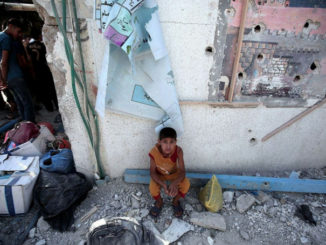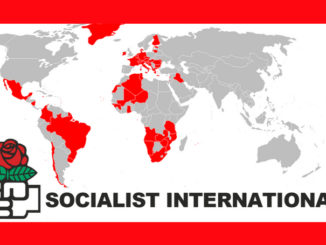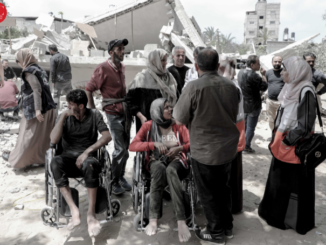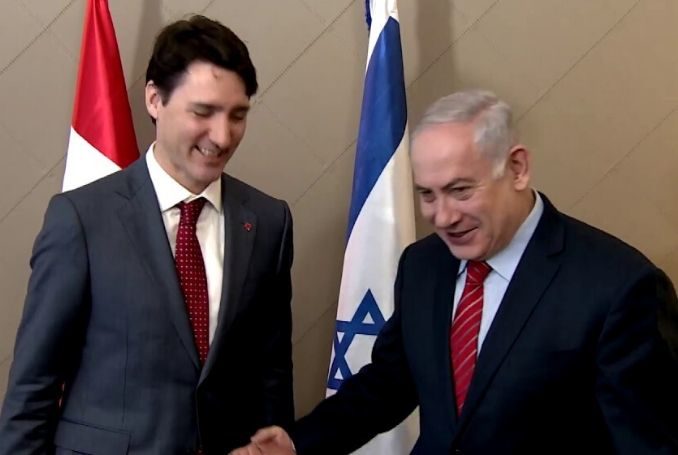
By Yves Engler
Canada claims to be a supporter of rules-based international order, but its record of supporting Israel in breaking these rules is long and spans the entire existence of that state.
While the innumerable ways in which Canada supports Israel’s violence and displacement of Palestinians receive the bulk of critical attention, Ottawa has also enabled the Jewish supremacist state’s regional violence.
“Israeli occupation forces are now bombing Damascus. In less than 48 hours Israel bombed Lebanon, Palestine and Syria. Rogue colonial state doing what it does best. Terrorize people,” tweeted Lebanese commentator Hadi Nasrallah, on Saturday.
An “army with a state”, Israel has bombed Syria, Jordan, Egypt, Sudan, Lebanon, Tunisia and Iraq. According to Israeli military historian Zeev Maoz:
“Between 1948 and 2004, Israel fought six interstate wars, fought two (some say three) civil wars, and engaged in over 144 dyadic militarized interstate disputes (MIDs) that involved the threat, the display, or the use of military force against another state. Israel is by far the most conflict prone state in modern history. It has averaged nearly four MIDS every year. It has fought an interstate war every nine years. Israel appears on top of the list of the most intense international rivalries in the last 200-year period.”
Later in the 2008 book Defending the Holy Land: A Critical Analysis of Israel’s Security and Foreign Policy, Maoz notes:
“There was only one year out of 56 years of history in which Israel did not engage in acts involving the threat, display, or limited use of force with its neighbors. The only year in which Israel did not engage in a militarized conflict was 1988, when Israel was deeply immersed in fighting the Palestinian uprising, the intifada. So it is fair to say that during each and every year of its history Israel was engaged in violent military actions of some magnitude.”
Maoz concludes: “None of the wars — with a possible exception of the 1948 war of Independence — was what Israel refers to as Milhemet Ein Brerah (‘war of necessity’). They were all wars of choice or wars of folly.”
In recent years, Israel has repeatedly assassinated Iranian officials and destroyed facilities. It has also bombed Syria on a weekly basis. Since a horrible earthquake struck northern Syria and southern Turkey two months ago Israel has twice bombed Aleppo’s airport (as well as the Damascus airport and other sites). A UN official criticized the airport attacks for hindering earthquake relief in the devastated nation.
But I failed to find a single instance of Canadian officials criticizing one of the 100+ bombings in Syria or killings in Iran. While they stay mum on Israel’s regional violence, foreign affairs minister Mélanie Joly immediately denounced the rockets recently launched from Lebanon noting, “Canada strongly condemns the firing of rockets into Israel originating from the south of Lebanon and Gaza. Our thoughts are with civilians impacted by these attacks.”
Canada has long accepted and enabled Israeli violence. Before the state’s formation Israel’s Air Force was dominated by Canadian World War II veterans and hundreds of Canadians fought with the forces that ethnically cleansed Palestine in 1948.
Soon after Israel’s creation Canada began selling the country arms. Canada continued selling Israeli weapons after the UN censored it for killing dozens of Egyptians and Palestinians in the Egyptian-controlled Gaza Strip in 1954 and 1955. In 1956 Israeli pilots came to train in Canada and Ottawa agreed to sell that country 24 top-of-the-line F86 fighter jets.
These weapon sales did not go unnoticed in Egypt. A month before Israel’s 1956 invasion of Egypt, President Gamal Nasser labeled Canadian weapons sales to Israel “a hostile act”.
Ottawa actively supported Israel before, during, and after the 1967 war. Ignoring Israel’s raids into Syria and the occupied West Bank, Ottawa helped stoke tensions in the days before Israel invaded its neighbors.
Canada co-sponsored (with Denmark) an emergency Security Council meeting to call attention to Egypt’s blockade of Israeli shipping through the Strait of Tiran on the Gulf of Aqaba. Undermining UN Secretary-General U Thant’s efforts to reduce tension, Ottawa made this move while the head of the UN negotiated the issue with President Gamal Nasser in Cairo. The emergency meeting contributed to the sense of crisis, which Israel used to justify invading Egypt.
Ottawa also supported a US and British proposal to establish a maritime force to protect Israeli shipping through the Strait of Tiran. Made during a politically turbulent time, the Egyptians considered Ottawa’s comments and actions a threat.
Even though Israel won in six days Prime Minister Lester Pearson implied that it faced an Arab Goliath. Canada also voted against a Yugoslav resolution calling for Israel to withdraw behind the armistice lines and for the Secretary-General to consider remaining questions immediately after Israel’s withdrawal.
During the 1980s Ottawa tacitly supported Israeli aggression in the region. In June 1981 Israel, a nuclear-armed power, bombed the Osiraq nuclear reactor near Baghdad. Canada abstained on the UN resolution criticizing it and opposed a call for Israel to be expelled from the International Atomic Energy Agency in response.
The next year the Israeli army tried to go all the way to Beirut in a bid to destroy the Palestinian Liberation Organization and to install a client government. The Pierre Trudeau government criticized Israel’s 1982 invasion of Lebanon, but its opposition was symbolic. Only months after the Sabra and Shatila massacre Israeli Defence Minister Ariel Sharon, who was later judged indirectly responsible for the slaughter, visited Canada. Despite protests, Liberal MPs enthusiastically defended Sharon’s visit.
Ottawa failed to unequivocally condemn Israel’s invasion, let alone impose sanctions as it did when the Soviet Union invaded Afghanistan three years earlier or during Argentina’s invasion of the Falkland Islands the same year. Instead of imposing sanctions (diplomatic or economic) for its 18-year occupation of Lebanon, during the 1980s Ottawa continued business as usual with Israel. This included subsidizing many registered charities raising funds for projects in Israel, turning a blind eye to illegal recruitment for the IDF, and signing a free trade agreement with Israel in 1997.
In 2006 Canada’s prime minister explicitly defended Israel’s invasion, its fifth, of Lebanon. Stephen Harper called Israel’s military assault on Lebanon a “measured response” to Hezbollah incursions. Fifteen times more Lebanese civilians than Israelis were killed during the 33-day war.
Three months after the conclusion of hostilities, Harper vetoed a 55-member Francophonie statement that “deplored” the effect of the month-long conflict on Lebanese civilians and Canada opposed a later General Assembly calling on Israel to compensate Lebanon for the damages it caused during the 2006 war. One hundred and sixty-five countries voted in favour of the resolution while eight opposed it.
Israel has been responsible for a remarkable amount of death and destruction in the region. While Canada has often correctly criticized other countries for invading, bombing or using other military means to intimidate neighbors, such behavior by Israel is generally ignored or encouraged.
For Canada to have international credibility, this double standard must end.
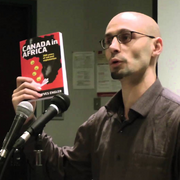
– Yves Engler is the author of Canada and Israel: Building Apartheid and a number of other books. He contributed this article to The Palestine Chronicle. Visit his website: yvesengler.com.



